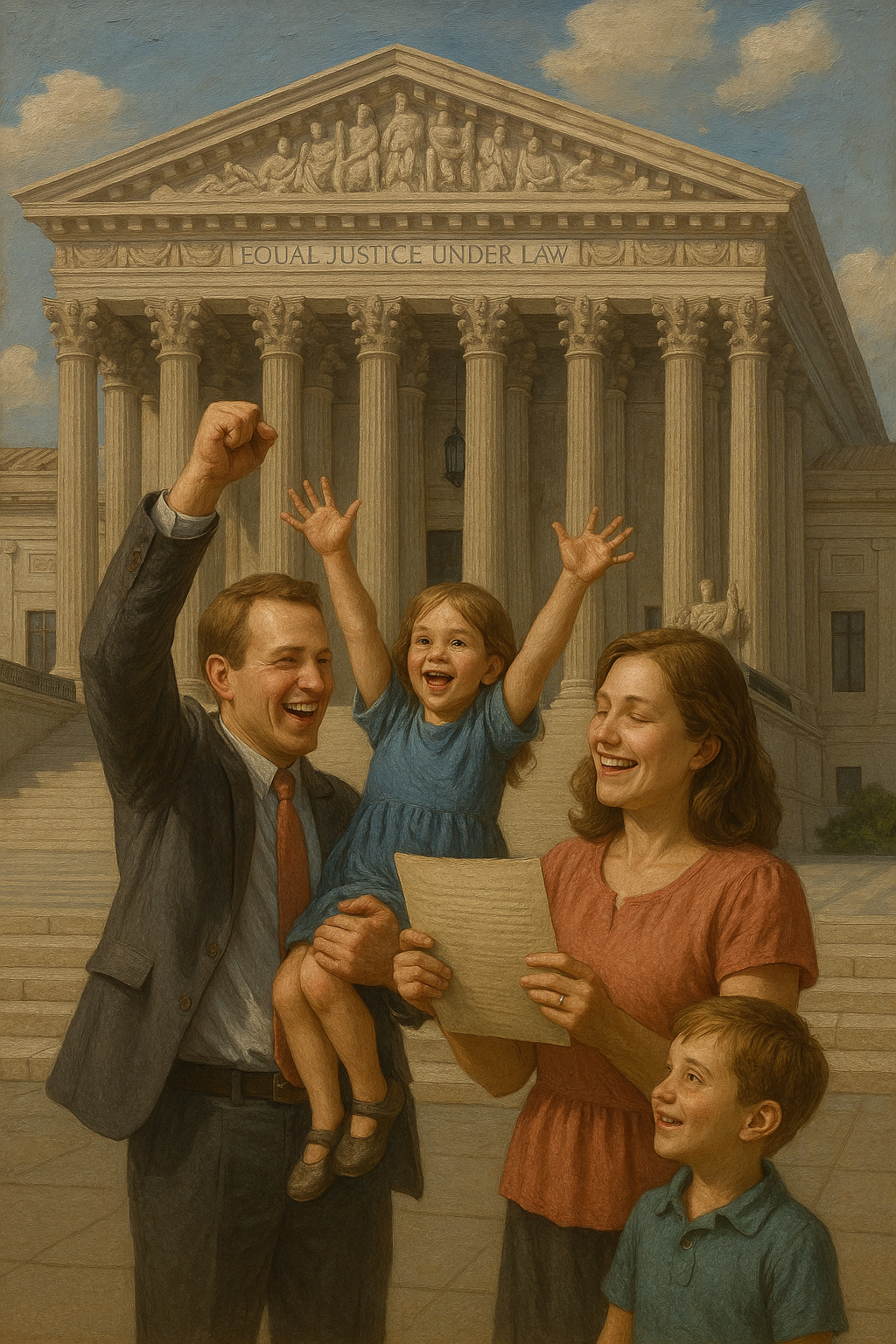Supreme Court Upholds Parental Rights: A Landmark Victory for Family Values
In a landmark decision on June 27, 2025, the U.S. Supreme Court ruled 6-3 in favor of Maryland parents seeking to exempt their children from public school lessons involving LGBTQ-themed books, citing violations of religious freedom. ([apnews.com](https://apnews.com/article/e91c0e7bb4359a05adf7b1079709e76b?utm_source=openai)) Justice Samuel Alito, writing for the conservative majority, stated that the Montgomery County school district’s decision not to allow parents to opt out of such lessons places an unconstitutional burden on religious rights.
This ruling marks a significant victory for the parental rights movement, which has long advocated for the authority of parents to direct their children's education in accordance with their values and beliefs. The movement's roots trace back to the early 20th century, with pivotal cases like *Pierce v. Society of Sisters* (1925), where the Supreme Court recognized that "the child is not the mere creature of the state; those who nurture him and direct his destiny have the right, coupled with the high duty, to recognize and prepare him for additional obligations." ([ij.org](https://ij.org/cje-post/a-supreme-court-anniversary/?utm_source=openai))
In recent years, the parental rights movement has gained momentum, particularly among conservative and religious communities concerned about educational content that conflicts with their values. Advocacy groups have been instrumental in challenging curricula that they believe infringe upon their rights to guide their children's moral and religious upbringing.
The Supreme Court's decision underscores the enduring principle that parents possess a fundamental right to make decisions concerning the care, custody, and control of their children. This ruling not only reinforces parental authority but also sets a precedent that may influence future cases involving educational content and parental rights nationwide.
Critics of the decision, including Justice Sonia Sotomayor, LGBTQ advocates, and groups like PEN America, argue that the ruling threatens diversity, free speech, and civic education. ([apnews.com](https://apnews.com/article/e91c0e7bb4359a05adf7b1079709e76b?utm_source=openai)) However, supporters, including Republican lawmakers and legal representatives, frame the decision as a protection of parental rights and religious liberty.
This ruling is expected to have nationwide implications, potentially encouraging similar legal challenges and raising concerns about its effect on educational content and inclusivity in schools. Skeptics warn of a chilling effect on curriculum and the risk of increased censorship based on ideological objections. ([apnews.com](https://apnews.com/article/e91c0e7bb4359a05adf7b1079709e76b?utm_source=openai))
As the nation continues to grapple with the balance between educational inclusivity and parental rights, this Supreme Court decision serves as a pivotal moment in the ongoing debate over the role of parents in public education.
